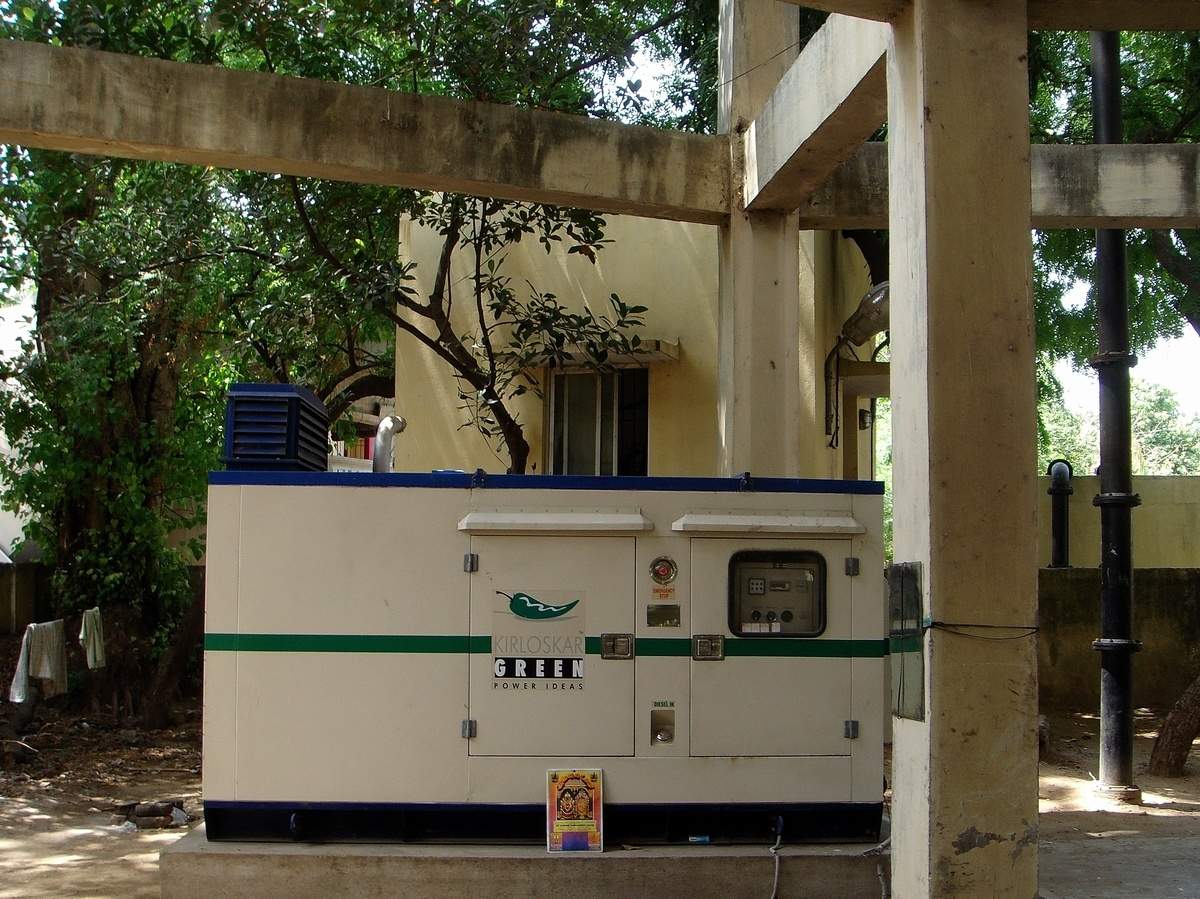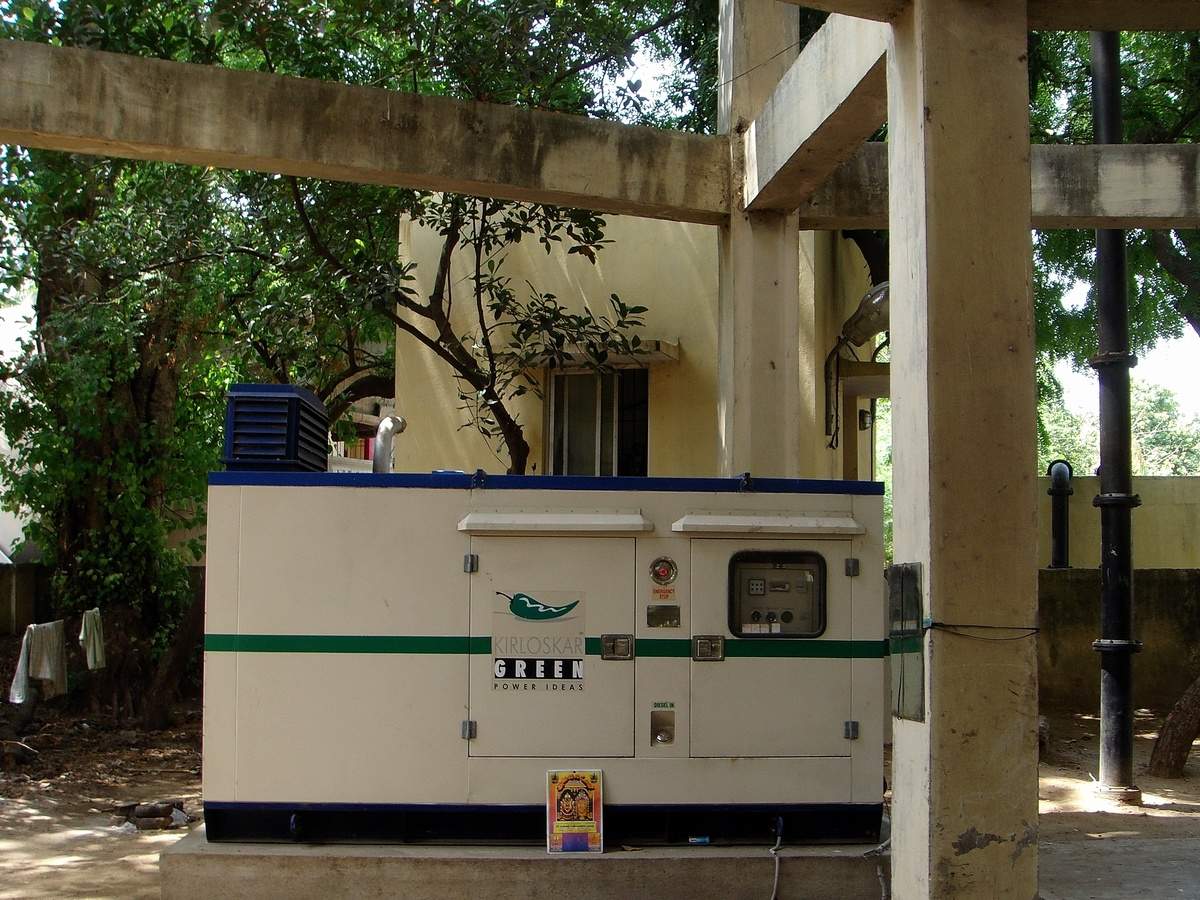A 5Kw generator can power a house with average electricity usage. Generating 5Kw of power, a 5Kw generator is capable of supplying adequate electricity to power a house.
It can provide power to essential appliances like refrigerators, lights, fans, and charging devices. However, it might not be sufficient to run high-energy consumption appliances simultaneously or power heavy-duty electrical equipment such as air conditioners, heaters, or electric ovens. The capacity and capability of the generator should align with the household’s electricity demands and planned usage to ensure a consistent and reliable power supply.
It is advisable to consult an electrician or generator expert for accurate evaluation and sizing to determine if a 5Kw generator is suitable for powering your specific household needs.
Understanding The Power Output Of A 5kw Generator
Understanding the Power Output of a 5Kw Generator
When it comes to powering your house during a blackout or while camping off-grid, a generator can be an essential tool. However, choosing the right generator can be a daunting task. One common question that arises is whether a 5Kw generator can power a house adequately. To answer this question, it is crucial to understand the concept of power output in generators, how it is measured in kilowatts (kW), and the factors that need to be considered.
Explaining The Concept Of Power Output In Generators
Power output is the maximum amount of electrical power that a generator can produce. It determines the number and type of appliances that can be powered simultaneously. In the case of a 5Kw generator, it has a power output of 5000 watts. This means it can provide a total of 5000 watts of electrical power at any given time. Understanding the power output is crucial as it helps in evaluating whether a generator can meet the energy demands of a house.
How Power Output Is Measured In Kilowatts (kW)
Generators typically measure their power output in kilowatts (kW). One kilowatt is equivalent to 1000 watts. Therefore, a 5Kw generator has a power output of 5000 watts. This measurement allows for easy comparison between different generator models, helping users determine if a particular generator can handle their power needs. The power output measurement is essential for estimating the number and types of appliances that can be powered simultaneously using the generator.
Factors To Consider When Determining If A 5kw Generator Can Power A House
- Total Power Consumption: The first factor to consider is the total power consumption of your house. Evaluate the wattage required by all essential appliances such as refrigerators, air conditioners, heating systems, lighting, and electronics. Add up their wattage to determine if it falls within the 5000-watt output of the generator.
- Start-up Surge Power: Some appliances, such as air conditioners and refrigerators, require an initial surge of power to start. This surge power can be significantly higher than their running wattage. Ensure that the peak surge power of your appliances does not exceed the generator’s capacity to handle it, as this can overload the generator and cause it to trip.
- Priority and Load Management: It might be necessary to prioritize the use of appliances when running them simultaneously on a 5Kw generator. For example, running a refrigerator constantly while turning off other non-essential appliances when it is not required can help manage the load efficiently.
- Type of Appliances: The type of appliances you intend to power with the generator is an important consideration. Energy-intensive appliances like air conditioners and electric heaters require more power to run and can quickly deplete a 5Kw generator’s output if used simultaneously with other power-hungry devices.
- Energy Conservation: Practicing energy conservation techniques can significantly extend the generator’s run time. Using energy-efficient appliances and reducing unnecessary electricity consumption can help make the most out of a 5Kw generator.
In conclusion, understanding the power output of a 5Kw generator is crucial in determining if it can adequately power a house. By evaluating the total power consumption, start-up surge power, load management, types of appliances, and energy conservation practices, users can have a clearer idea of whether a 5Kw generator is suitable for their specific needs.
Assessing The Energy Usage Of A Typical House
The energy requirements of a house are crucial factors to consider when determining whether a 5Kw generator can adequately power it. To accurately estimate the load capacity of a generator, it is essential to assess the energy usage of a typical house. In this section, we will delve into the various aspects to consider when evaluating the energy consumption of a house, starting with estimating the average energy consumption.
Estimating The Average Energy Consumption In A House
Estimating the average energy consumption in a house allows us to gauge the power requirements accurately. The electricity consumption of a typical household depends on several factors such as the size of the house, the number of occupants, and the appliances and devices being used. On average, a typical American household utilizes around 900 to 1,200 kilowatt-hours (kWh) per month. However, this can vary significantly depending on individual usage habits and regional factors.
Differentiating Between Essential And Non-essential Appliances And Devices
When assessing the energy usage of a house, it is crucial to differentiate between essential and non-essential appliances and devices. Essential appliances generally include items like refrigerators, light fixtures, heating and cooling systems, and essential kitchen appliances. Non-essential devices, on the other hand, encompass items such as televisions, gaming consoles, and other entertainment devices. Understanding the energy requirements of each category will help pinpoint the critical load needed to power the essential appliances during a power outage.
Calculating The Total Energy Requirements Of A House
Calculating the total energy requirements of a house involves summing up the power consumption of all essential appliances and devices. To determine the wattage needed, refer to the labels on the devices themselves or consult the user manuals. Make sure to take note of the running wattage and any additional surge wattage for devices that may require an extra boost when starting up.
Once you have compiled a list of the essential appliances and their respective wattages, add up all the numbers to obtain the total energy requirement of the house. This sum will provide a more accurate representation of the load capacity a 5Kw generator needs to meet. Remember, it is always advisable to leave some room for additional power needs or unforeseen circumstances.
By assessing the energy usage of a typical house and calculating the total energy requirements, you can determine whether a 5Kw generator will be sufficient to power your household during an outage. It’s important to have a generator that meets the energy demands of your home to ensure comfort and functionality even in times of power interruptions.
Matching Generator Capacity With Energy Needs
The key to effectively powering your house with a 5Kw generator lies in matching the generator’s capacity with your energy needs. Understanding the power demands of various appliances and devices, analyzing their startup and running wattage, and calculating the total power requirements are all crucial steps in determining the generator capacity needed. Let’s delve deeper into each of these factors to help you make an informed decision.
Understanding The Power Demands Of Various Appliances And Devices
To determine the generator capacity needed to power your house, it’s essential to have a clear understanding of the power demands of your appliances and devices. Different household items have different power requirements, and this information is typically provided on their labels or in their user manuals. These power requirements are usually expressed in terms of wattage, which represents the amount of power an appliance or device consumes when operating.
Analyzing The Startup And Running Wattage Of Different Household Items
When it comes to powering your house with a generator, it’s important to not only consider the running wattage of your appliances and devices but also their startup wattage. Startup wattage refers to the extra power required by an appliance or device when it is turned on or when it cycles on and off. Certain appliances, such as refrigerators, air conditioners, and water pumps, have higher startup wattage compared to their running wattage. You’ll need to take this into account when determining the generator capacity needed.
Calculating The Total Power Requirements And Determining The Generator Capacity Needed
Once you have a clear understanding of the power demands and startup wattage of your household items, calculating the total power requirements becomes a straightforward process. Simply add up the running wattage of all your appliances and devices, taking into account any startup wattage. This will give you an indication of the generator capacity needed to power your house adequately. Keep in mind that it’s always advisable to opt for a slightly higher generator capacity than your calculated requirements to account for any unexpected power surges or additional appliances you may need to power in the future.
Maximizing The Efficiency Of A 5kw Generator
When it comes to powering a house, a 5Kw generator can be a reliable option. However, to make the most out of its capacity and to ensure a cost-effective power supply, it is crucial to implement strategies that maximize its efficiency. In this section, we will explore tips and strategies to minimize energy consumption, utilize energy-efficient appliances and devices, and implement energy-saving practices, allowing you to optimize the usage of your 5Kw generator.
Exploring Tips And Strategies To Minimize Energy Consumption
To minimize energy consumption and get the most out of your 5Kw generator, incorporating these strategies can be highly beneficial:
- Seal any air leaks: Inspect your house for air leaks and seal them properly using weatherstripping or caulk. This will prevent the loss of conditioned air and reduce the need for excessive heating or cooling.
- Upgrade to LED lighting: Replacing traditional incandescent bulbs with energy-efficient LED lighting solutions can significantly lower your electricity usage. LED bulbs consume less energy and have a longer lifespan, making them a cost-effective choice.
- Proper insulation: Adequate insulation in walls, floors, and ceilings helps maintain a comfortable indoor temperature without relying heavily on heating or cooling devices. This, in turn, reduces the energy requirement and optimizes the generator’s efficiency.
- Invest in energy-efficient windows: Energy-efficient windows with double or triple panes, low-emissivity coatings, and insulated frames can minimize heat transfer and reduce the need for excessive heating or cooling, reducing overall energy consumption.
Utilizing Energy-efficient Appliances And Devices
Using energy-efficient appliances and devices can significantly reduce the load on your 5Kw generator. Here are some considerations when selecting energy-efficient options:
- Purchase appliances with ENERGY STAR ratings: ENERGY STAR-certified appliances are designed to use less energy without compromising performance. Look for this label when buying new appliances such as refrigerators, air conditioners, or washing machines.
- Opt for inverter technology: Inverter-based appliances like air conditioners or refrigerators offer better energy efficiency by adjusting their power consumption based on the required load, resulting in reduced energy wastage.
- Consider power-saving features: Many modern devices come with power-saving modes or features. These features automatically optimize the power consumption of the device, allowing you to minimize energy usage without sacrificing functionality.
Implementing Energy-saving Practices To Optimize Generator Usage
Aside from adopting energy-efficient appliances and devices, implementing simple energy-saving practices can further optimize the usage of your 5Kw generator:
- Unplug unused devices: Appliances and devices on standby mode can still consume energy, known as phantom energy. Unplug these devices when not in use to prevent unnecessary power drain.
- Practice smart heating and cooling: Adjusting your thermostat to reasonable temperatures and using fans or natural ventilation instead of relying solely on heating or cooling devices can help minimize energy consumption.
- Regular maintenance of appliances: Keeping your appliances well-maintained can improve their efficiency. Clean or replace air filters, coils, and other components to ensure optimal functioning and prevent excessive energy consumption.
- Utilize natural light: Make the most of natural daylight by opening curtains or blinds during the day. This reduces the need for artificial lighting, thereby saving energy.
By following these tips and implementing energy-efficient practices, you can maximize the efficiency of your 5Kw generator and minimize unnecessary energy consumption. This not only ensures a continuous and reliable power supply for your house but also helps reduce your carbon footprint and save on electricity costs.
Considering Alternatives To A 5kw Generator
If you’re considering powering your house with a generator, it’s important to explore alternative options to a 5Kw generator. While a 5Kw generator can provide a decent amount of power, there may be other generator options with higher power output that can better suit your needs. Alternatively, you may also want to investigate renewable energy sources as a more sustainable and efficient solution to power your home. Let’s explore these alternatives and evaluate the pros and cons of each.
Exploring Other Generator Options With Higher Power Output
While a 5Kw generator can power essential appliances and electronics in your home, you may require a higher power output for larger households or if you have additional power demands. Upgrading to a generator with a higher power output can ensure that you have enough energy to sustain your household’s needs. Some generator options with higher power output include:
- 10Kw Generators: These generators offer double the power output of a 5Kw generator, making them suitable for larger homes or households with higher energy demands.
- 15Kw Generators: With a power output of 15Kw, these generators are ideal for powering homes with multiple floors or a wide range of energy-consuming appliances.
- 20Kw Generators: If you have a large house or anticipate using a significant amount of electricity, a 20Kw generator can provide ample power for your needs.
When considering other generator options, it’s essential to assess your energy requirements, the size of your home, and the specific appliances and electronics that you need to power. Consulting with a professional can help you determine the best generator option for your household.
Investigating Renewable Energy Sources As An Alternative Power Solution
While generators can provide temporary power during emergencies or when there is a lack of electricity supply, they are not the most sustainable solution in the long run. Renewable energy sources offer a greener alternative to power your house, reducing your carbon footprint and providing consistent energy. Some renewable energy sources you may consider include:
- Solar Power: Installing solar panels on your roof harnesses the sun’s energy to generate electricity for your home. Solar power is a clean and renewable energy source that can significantly reduce your dependence on traditional generators.
- Wind Power: If you live in an area with consistent wind patterns, a wind turbine can harness the wind’s energy to generate power for your household. Wind power is another environmentally friendly option that can provide a reliable source of electricity.
- Hydro Power: If you have access to a water source such as a river or stream on your property, hydroelectric power can be a viable option. Using a turbine, the flowing water can generate electricity, providing a sustainable source of power.
While renewable energy sources may require an initial investment, they can pay off in the long run through reduced energy bills and a reduced carbon footprint. It’s advisable to consult with professionals who specialize in renewable energy installations to assess the feasibility and suitability of these alternatives for your home.
Evaluating The Pros And Cons Of Different Energy Alternatives For Powering A House
When it comes to powering a house, it’s crucial to consider the pros and cons of different energy alternatives to make an informed decision. Let’s explore the advantages and disadvantages of the options discussed:
| Generator Options | Pros | Cons |
|---|---|---|
| 5Kw Generator | 1. Adequate power for small to medium-sized homes. | 1. Limited power output for larger households or high energy demands. |
| 10Kw Generator | 1. Double the power output compared to a 5Kw generator. | 1. Higher cost than a 5Kw generator. |
| 15Kw Generator | 1. Sufficient power for larger homes or multiple floors. | 1. Higher initial investment compared to lower power generators. |
| 20Kw Generator | 1. Ample power for large houses or significant energy demands. | 1. Higher upfront and operational costs. |
- Solar Power
- Pros: Clean and renewable energy, reduced electricity bills over time.
- Cons: High initial installation cost, reliance on sunlight availability.
- Wind Power
- Pros: Relatively consistent energy source, environmentally friendly.
- Cons: Location-dependent, installation and maintenance cost.
- Hydro Power
- Pros: Reliable energy source, environmentally friendly.
- Cons: Property and water resource requirements, potential environmental impact.
By weighing the advantages and disadvantages of each option, you can make a well-informed decision on the best alternative for powering your house.

Credit: economictimes.indiatimes.com
Frequently Asked Questions
Can A 5kw Generator Power A House?
A 5KW generator can power a small house or a few essential appliances during a power outage. However, its capacity may not be sufficient to run the entire house with multiple appliances simultaneously. It is important to calculate the power needs and consider a generator with a higher capacity if you have larger appliances or plan to power the whole house.
Conclusion
To summarize, a 5Kw generator has the potential to power a house, depending on its specific energy requirements. It’s crucial to consider the electrical load you plan to run in your home and whether the generator’s capacity matches it. Consulting with an electrician can help determine the right generator size to meet your power needs effectively.
Remember, regular maintenance and proper usage are essential to maximize the generator’s performance and longevity.

